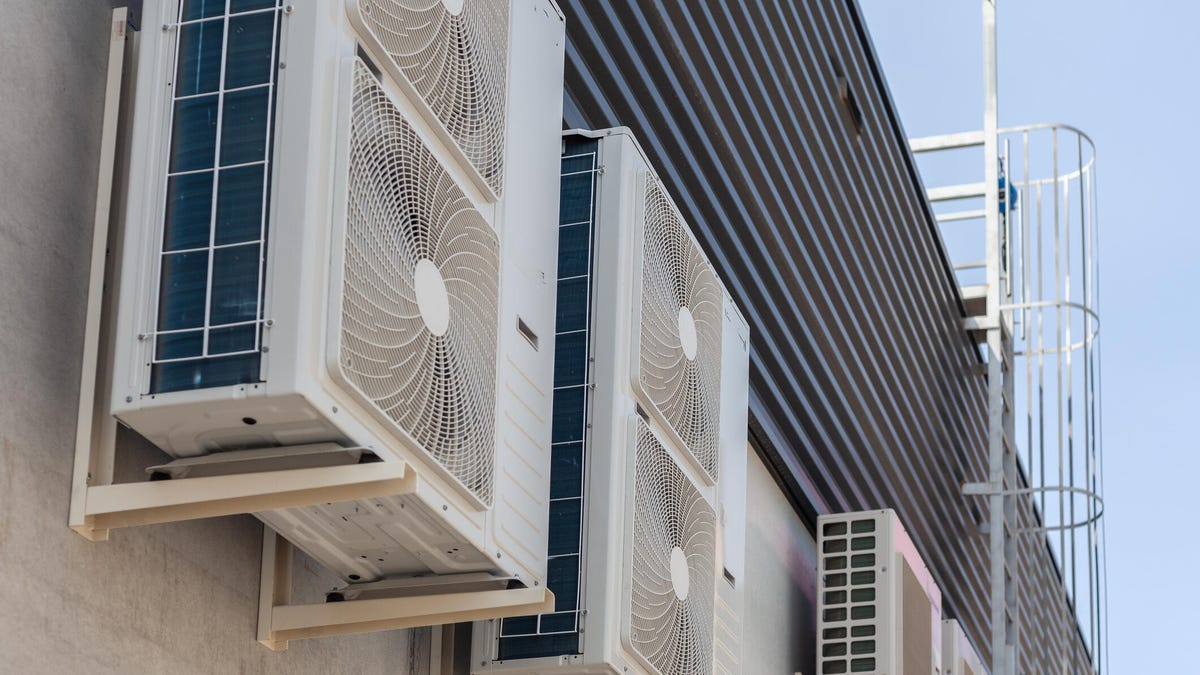Commercial Rooftops Are the Next Frontier for Energy Efficient Heat Pumps

Think your energy bills are high when winter is at its coldest or summer is at its hottest? The next time you’re walking through a big-box store, imagine how much it costs to maintain a comfortable temperature under those high ceilings.
The commercial sector accounted for about 18% of the total energy consumed in the US in 2022, and by far the single largest energy use for commercial buildings is in space heating, at 32%, according to data from the US Energy Information Administration.
A key way to make heating less energy intensive and reduce fossil fuel emissions? Develop technologies that can heat large buildings more efficiently, like heat pumps. That’s the focus of an accelerator program announced Wednesday by the Department of Energy.
DOE’s new Commercial Building Heat Pump Accelerator program is challenging manufacturers to build better rooftop heat pumps that can replace the less-efficient heating and cooling technology currently sitting atop warehouses and stores near you. It’s similar to a DOE challenge to make heat pumps work more efficiently in cold weather, which would help reduce the reliance of Americans in colder areas on fossil fuels like gas and oil.
The commercial heat pump initiative “builds on more than a decade of public-private partnerships to get cutting edge clean technologies from lab to market, helping to slash harmful carbon emissions throughout our economy,” Energy Secretary Jennifer Granholm said in a news release.
Why heat pumps matter
Residential heat pumps are a big deal, and they keep getting bigger. They outsold gas furnaces last year.
The reasons why are pretty simple: A heat pump can save you money, depending on how much you pay for electricity and gas or other heating fuels, and they can do the work of both a furnace and an air conditioner.
The technology is also fairly simple. They cycle a pumped refrigerant between your home and somewhere outside — the air outside in the case of an air-source heat pump, the warm underground in the case of a geothermal heat pump. It transfers heat into your home when your thermostat tells it to warm things up, and it moves heat out when the thermostat tells it to cool things down.
Because heat pumps generally run on electricity, they reduce fossil fuel emissions if they’re running on clean energy like renewables on the grid or solar panels on your roof. And because they’re more efficient than electric furnaces or older air conditioner models, they use less energy overall.
Saving both energy and money
Heating up buildings uses a lot of energy, and that costs a lot of money.
Switching to more efficient, improved heat pump technology could cut fossil fuel emissions in half compared with natural gas-powered technology, DOE said, and it could also save American businesses $5 billion each year on utility bills. For an individual business, where the cost of energy comes in much larger dollar figures than for a homeowner, those savings can be significant.
Consider some recent research on how heat pumps could save people on individual residential energy costs. A study by the National Renewable Energy Laboratory found that switching to air-source heat pumps would reduce home energy consumption by 31% to 47% on average and emissions by 36% to 64%.
Source: CNET














